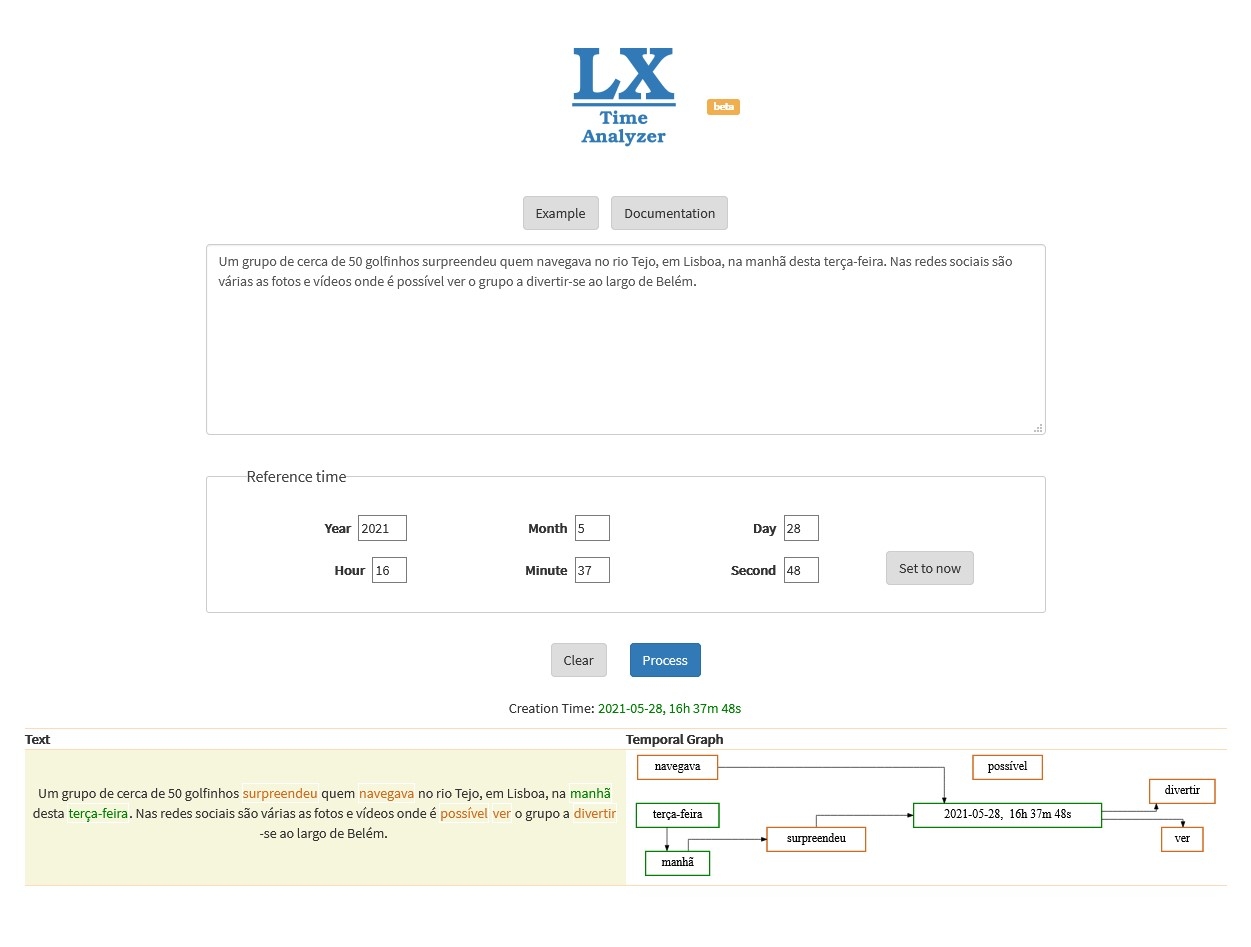Written by João Silva
On 16 April 2021, João Ricardo Silva of PORTULAN CLARIN held an online master class for PhD students in Linguistics from NOVA FCSH, the School of Social Sciences and Humanities of the NOVA University of Lisbon, with the purpose of presenting PORTULAN CLARIN and its services, in particular the language processing tools it makes available for language research in the online Workbench. Roughly thirty students and a few professors were in attendance.
The class began with a presentation introducing CLARIN and PORTULAN CLARIN, followed by a live demo of the several language processing tools PORTULAN CLARIN has accessible in its Workbench. The presentation of CLARIN and PORTULAN CLARIN took about 15–20 minutes and served to provide some context to the students, as none of them were familiar with the infrastructure. The live demo that followed took about 90 minutes and walked the audience through the main parts of the site of PORTULAN CLARIN, with the major focus being on the Workbench. The online interface of almost every tool was shown, and a few examples were run to exemplify the sort of output produced by the tool. An example was already shown in the Tool section, which featured the LX‑DepParser and the LX‑TimeAnalyzer, a tool that, given a text, identifies all events mentioned in it and finds relations between them (given two events A and B, the possibilities are for A to precede B, A to follow B, A to overlap with B, or for no relation to be established).

At the end of the class there was time for the students to ask questions about the tools. For example, a student asked whether the tools could be applied to languages other than Portuguese. As the tools are language-specific, the student was directed towards the main CLARIN site and its Virtual Language Observatory, where relevant results might be found. Another student wanted to know more regarding the CINTIL Concordancer service, namely about which corpora were searchable. As the name of the service implies, currently only the CINTIL corpus is indexed, but this question has motivated us to work towards the inclusion in the Workbench of a concordancing service that can work on a corpus submitted by the user.